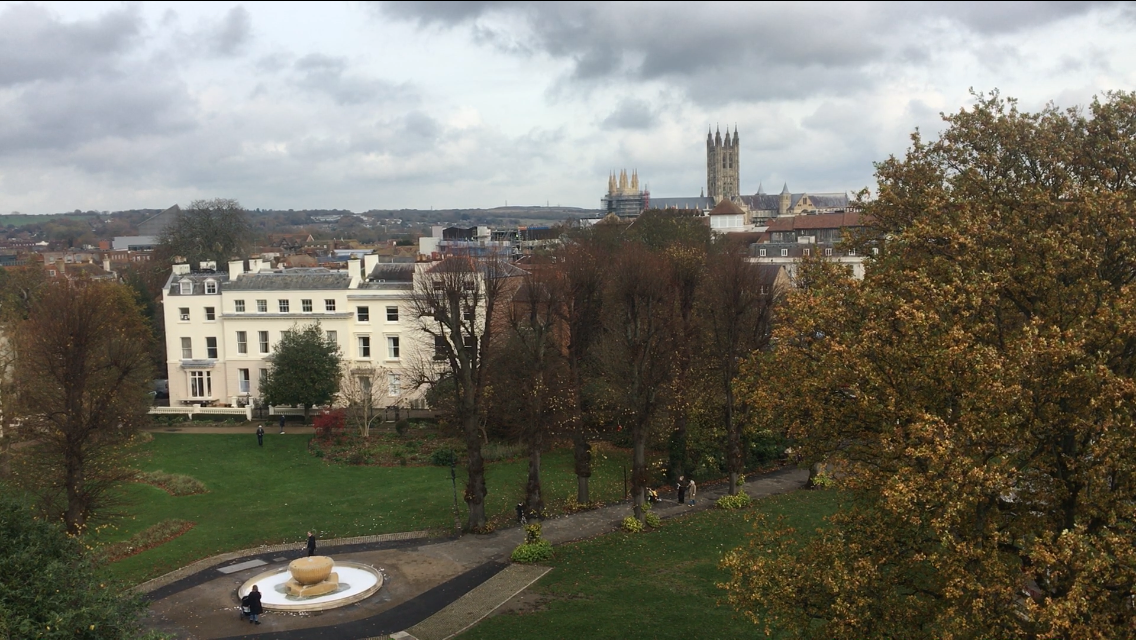Explained: Canterbury’s coronavirus roadmap
Canterbury’s city centre looks considerably different after the easing of Covid restrictions. Hospitality businesses will fully re-open on the 17th of May, which leaves several pubs and restaurants in another month of hibernation. As Canterbury is a tourist and student centric city, some may be concerned whether it can support itself on purely students alone.
On the 12th of April, the hospitality sector could finally welcome a limited number of customers to their gardens and terraces. Those without outdoor spaces must wait another month and possibly miss ‘the boom’. Also, these businesses may experience a slight disadvantage during the summertime, as they experience their ‘prime time’ during Christmas, and/or Easter holidays. And yet, these are one of the last ones to re-open.
Canterbury Business Improvement District chief executive, Lisa Carlson, said on KentOnline:
“There are lots of positives and signs that Canterbury will be OK, but I don’t want to understate the impact on our hospitality businesses in particular.”
The widespread calls from hospitality business owners and Tory MPs to open venues for Easter time were disregarded. The decision to open non-essential retail before pubs and restaurants has started a debate. The frequency of rising cases alone would not stop re-opening entirely. The main reason for another lockdown would be if the rise overwhelms hospitals and the NHS.
As Rachel Pilard from BID suggests, hospitality businesses have been proved to be one of the most Covid-safe places.
The UK government replaced the tier system, created in 2020, with a four-step roadmap.
The first restrictions were lifted on the 12th of March, with the focus on mobilising the education sector and allowing for social contact in support bubbles. On the 29th of March, we returned to the rule of six or two households, with businesses and facilities (with outdoor spaces), allowed to open.
The third stage will be implemented on the 17th of May. This will allow for even more social contact in pubs and restaurants which will be in full operation. Covid-secure guidance will remain in place; with limits on group size, and/or table service.
The last stage which will be issued on June 21st might look as normal as we remember; with the remaining premises re-opening and people participating in activities and events with little restrictions.
These four steps should have a minimum of a five-week gap, which leaves four weeks for analysis and reflection of the data, and one week to inform the public. UK’s route back to ‘normal’ will be, as stated, navigated by data, while the setup dates are “subject to change”. The roadmap incorporates four tests, or reviews, which will focus on the success of the vaccine roll-out, effectiveness of vaccination (regarding deaths and hospitalisations) as well as observation of any new variants, and protection of the NHS.
The third wave
More than 31 million people in England have now been vaccinated, but the success of the vaccination programme does not secure universal protection. Imperial College in London finds that the Covid-19 roadmap, out of lockdown, could lead to a third wave.
PM Boris Johnson describes it as the “fastest rollout of a vaccine this country has ever seen” but there is still a gap in the findings on the impact of a third Coronavirus wave from Europe. Previous experience shows that the new wave could arrive in the UK “three weeks later”.
Specialists encourage people to comply with the Covid-Secure measures; meeting outdoors in the fresh air, continue with testing and get vaccinated when offered. Collective action and adherence to the rules will see a more familiar future soon.
